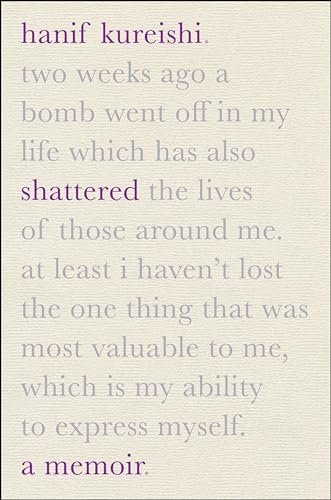
11 Jul Book Review of Shattered
Review of Shattered by Hanif Kureishi
In a world where most of us grapple with the fragility of life, Hanif Kureishi’s Shattered caught me right in the heart, pulling me into a profound exploration of suffering, identity, and resilience. Kureishi, renowned for his incisive reflections on society and the human condition, offers us an unfiltered peek into his own life following a devastating accident that changed everything. As I turned each page, I was reminded of how art often arises from the deepest of pains, and how the voice of the artist can triumph despite the shadows encroaching upon them.
The book unfolds like a diary, chronicling Kureishi’s journey from the hospital ward in Rome on St. Stephen’s Day in 2022 back to his home in London. Through his candid reflections, we witness a torrent of emotions: despair, vulnerability, but also an indomitable will to create and express. Kureishi writes, “non ho più una dignità” (“I no longer have dignity”), and these words reverberate throughout the narrative, encapsulating the complex interplay between body and spirit in the face of overwhelming adversity.
What struck me most was the range of relationships he depicts—interactions with fellow patients, the caring (yet sometimes bureaucratic) healthcare staff, and the looming specter of fear that accompanies his new reality. Each encounter is laden with weight, both emotional and existential, making Kureishi’s voice feel simultaneously personal and universal. His prose is reminiscent of literary giants he so deeply admires—Kafka, Dostoevsky, and Balzac—all of whom explored the depths of human experience with a keen eye for detail and a profound empathy.
Kureishi’s writing style perfectly balances raw emotion with sharp wit; he invites us into his world while reflecting on larger societal themes. His storytelling flows seamlessly from the darkness of his illness to moments of brilliant insight about literature, identity, and his Pakistani heritage. Whether he’s reminiscing about his youth spent in the rhythm of London’s streets or contemplating the heavy influence of Freud and Baldwin, each passage resonates with a feeling of authenticity that makes Shattered an engaging, sometimes heartbreaking read.
A notable highlight is when he quotes Sandro Veronesi’s line, “Non posso continuare, continuerò” (“I cannot go on, I will go on”), echoing the very essence of human resilience that Kureishi embodies. This paradox beautifully encapsulates the duality of hope and hopelessness that permeates the narrative, making it a poignant reminder of the strength inherent in the act of creation—even when the creator feels fragmented.
In conclusion, I believe Shattered will speak to anyone who has battled with their own limitations or who seeks understanding about the fragility of existence. Kureishi crafts a poignant reminder that despite the inevitable suffering that life may bring, the act of writing—of sharing one’s truth—can serve as a powerful form of healing. Personally, this book challenged me to reflect on my own perspectives about pain, creativity, and the connection we share as human beings navigating through our lives. I came away feeling both heartbroken and uplifted, a testament to Kureishi’s ability to transform suffering into luminous prose.









